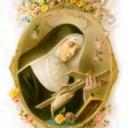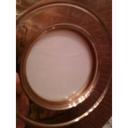Yahoo Answers is shutting down on May 4th, 2021 (Eastern Time) and beginning April 20th, 2021 (Eastern Time) the Yahoo Answers website will be in read-only mode. There will be no changes to other Yahoo properties or services, or your Yahoo account. You can find more information about the Yahoo Answers shutdown and how to download your data on this help page.
Trending News
Difference between Catholics and Protestants?
I'm wanting to look more in depth between the catholic faith before I convert. What at the major differences between Catholics and Protestants? Thanks for the help.
19 Answers
- Ár DaonlathasLv 610 years agoFavorite Answer
Catholicism is unique among the religions of the world for several reasons.
First, unlike other religions, Catholicism is rooted in history and evidence. Jesus of Nazareth was born in Bethlehem in Judea during the reign of Caesar Augustus and was put to death by Pontius Pilate, a first century Roman governor. The testimony of his life, death, and resurrection is validated both by credible eyewitness testimony and by credible extra-biblical evidence as well. No other religion can legitimately claim this kind of support from history and evidence.
Furthermore, of all the influential religious leaders of the world (Buddha, Moses, Zoroaster, Krishna, Lao Tzu, Muhammad, Baha’u’llah), only Jesus claimed to BE GOD in human flesh (Mark 14:62). And this was not an empty boast. For through the historical verifiable fact of resurrection, Christ vindicated his claim to deity (Romans 1:4; 1 Cor. 15:3-8). Other religions, such as Buddhism and Islam, claim miracles in support of their faith; however, unlike Catholicism, such miracles lack historical validation.
Then there is the empty tomb. No other religion serves a RISEN Lord. Even though Jesus had powerful political enemies in Jerusalem, none of them ever produced a body. When his disciples became aware of his resurrection, they STARTED spreading this good news by heading right back into the very city where he had been executed by the authorities. If the resurrection were a hoax, it wouldn’t have lasted an hour. History itself has failed to provide any other credible explanation for the empty tomb besides his resurrection.
Finally, Catholicism is unique in that it is a coherent belief structure. Some Christian doctrines may transcend comprehension, however, unlike the claims of other religions, they are never irrational or contradictory.Catholicism is also unique in that it cogently accounts for the vast array of phenomena we encounter in daily life: the human mind, laws of science and logic, ethical norms, justice, love, meaning in life, the problem of evil and suffering, and truth. In other words, Catholicism corresponds with the reality of our present condition.
- Protestantism which is the term used for the many thousands of faiths worldwide that are divided but all share their belief in the doctrines of the Protestant Reformers
The differences between a Catholic and a Protestant are many. If you want to know the difference between a Catholic and a "Protestant," you should prepare yourself to do much heavy reading from authoritative and unbiased sources.
The big difference between Catholicism and Protestantism are the five pillars, which paint a different picture of salvation, definitions of sin, freewill or predestination. These differences are many and vary from church to church.
Catholicism would have the claim to be the oldest, most faithful representation of Christianity based on comparison between the Church today and the Bible. Also comparison between the Church today and the teachings of Christians in days gone (a democracy of the dead if you will) such as those writings of The Church Fathers.
Catholics believe in seven sacraments. Protestants believe in two.
Catholics believe that the Eucharist is changed in essence into The Body and Blood of Jesus Christ (see John 6, and The Last Supper) Protestants believe this was only a symbol.
Catholics believe Sacred Tradition and Sacred Scripture are equal in value in sharing The Word of God. (The Bible says as much and there are many Christian teachings not in The Bible, such as The Trinity) Protestants believe that only that which is "plainly" laid out in The Bible is too be believed.
Catholics believe that we are justified by "faith together with works". We must have faith, but we will also be judged according to our works. Protestants believe in the man made doctrine "Sola fide" or "Faith Alone" which says that we only need to believe and we are saved.
Catholic might say something like "Jesus said..." to support a point of view. Many so called "Bible Churches" will say "The Bible says..." instead of focusing on why it was significant.
Other points of contention include;
- Clerical celibacy
- Church authority and hierarchy.
- Biblical canon
- the priesthood (automatic common priesthood or consecrated as well as common priesthood)
I don't belong to a religion or denomination,I belong to the church Jesus Christ established in 33AD,The Catholic Church is over 2,000 years old.
Catholic †
Source(s): http://www.youtube.com/watch?v=NG3QdH7Z74s&list=FL... http://www.drbo.org/ - Douay-Rheims Bible Online http://www.vatican.va/ - Catholic Catechism http://www.davidmacd.com/catholic/index2.htm - The Catholic Bridge. A great little "intro to Catholicism" site. http://www.youtube.com/watch?v=r7W97ru024c&feature... - Anonymous10 years ago
For the most part Catholics and Protestants believe that Jesus Christ was the Messiah, and Savior who died for our sins; they believe in the bible and that there is a heaven and hell. However...
The difference between Protestantism and Catholicism includes celibacy of the clergy, that is that priests cannot be married The defense of a non-married clergy comes from the understanding that Jesus was not married since He dedicated His life solely to God, and sought to teach people the Word of God free of familial obligations.
Hence, the Catholic priests of today do not marry so they may dedicate their lives to God and teach people the Word of God. Eastern rite priests, however, can be married before they enter the seminary to become priests. Also women can not serve as priests or Reverends in the Catholic church, however in Protestantism, many denominations allow women to serve as clergy.
Another difference is in receiving Communion. Catholics are offered Communion at every Mass. The idea being that, as human beings, they can receive the body and blood of Christ and the strength it gives to live a Christian life. Protestants may offer communion once a month or on major christian holidays like Easter and Christmas.
A third difference is the idea of confession. Catholics believe that they should go to confession to verbally express their sins. Besides the grace of the sacrament and the guarantee that their sins are forgiven by Christ who acts through the priest, Catholics also feel a natural sense of peace.
Protestants confess their sins directly to God or Jesus during prayer or meditation.
Protestants believe in the virgin Mary, although Catholics believe in her own immaculate conception and sinless life, which was thought up a few hundred years after the bible was written, and has no real basis in the bible. Catholics also believe that Mary is the mother of the Church, and that there are certain rituals (for want of a better word) that a person must go through before marriage and stuff, which other denominations don't really have.
More comparisons here:
- RockyLv 710 years ago
No one can tell you the true differences between Catholics and the group commonly called Protestants. The very term Protestant is misused for the Catholics say it means any group or religion which is not Catholic. The secular word means one who protest---and the Evangelical churches do not protest the Catholic--they simply do not agree with them, were never part of them and never desire to be part of the Catholic organization. So that leaves the true Protestant--Lutheran withdrew relationship with the Roman Universal Catholic Church in about 1535, The Presbyterian in about 1545, and the Church of England in about 1595. However there is one long prior to these three true protesters--the Greek Orthodox Catholic Church fell out with the Roman Universal Catholic Church when the Romans declared they were the only church worthy of a Pope and made it a crime for any other to attempt to have a Pope.
If you are considering any change, I strongly recommend you read a very small booklet that is very well documented. It is online on the Internet and is a truly eye opener. I have included the address below. Do read it before you make a move so important as to where you worship God.
- MistyLv 710 years ago
The major difference comes down to the authority of the Church. Protestants do not accept it, and therefore anything that relies on that authority or the sacred oral tradition that is preserved by the Church, is rejected by them.
I was raised Methodist, and converted to Catholicism 14 years ago. Feel free to email me if you have any specific questions.
@Pinx - The Ascension is about Christ, not Mary. If you're going to attack Catholicism, you might want to get the facts straight first. Mary was "assumed" into heaven, which means God took her up, body and soul. Christ ascended into heaven, under his own divine power, because he is God. There is a huge difference and Catholics know that. I didn't even read the rest of your post closely, I could just see it was filled with just as many misconceptions.
- How do you think about the answers? You can sign in to vote the answer.
- imacatholic2Lv 710 years ago
"What separates us as believers in Christ is much less than what unites us." (Pope John XXIII)
Almost all doctrine is completely agreed upon between Catholic Christians and other Christians.
Here is the joint declaration of justification by Catholics (1999), Lutherans (1999), and Methodists (2006):
By grace alone, in faith in Christ's saving work and not because of any merit on our part, we are accepted by God and receive the Holy Spirit, who renews our hearts while equipping us and calling us to good works.
http://www.vatican.va/roman_curia/pontifical_counc...
The main difference seems to be the source of the authority that God has given humans in this world.
Protestants believe that
+ The Bible is the only infallible authority
+ The Church is just a friendly gathering of believers, all of whom have their own authority to interpret the Bible for themselves
Catholics believe that God:
+ Established His Church with divine authority
+ Has passed this authority from person to person in an unbroken chain from the Apostles to the bishops of today
+ Gave the Church the deposit of Faith (not all of which was included in the Bible)
+ Uses the power of the Holy Spirit to preserve and deepen the understanding of this truth within the Church
+ Inspired the Church to write the documents that would become the New Testament
+ Inspired the Church to select which documents would be included in the Bible
+ Inspires the Church to properly interpret Scripture
For more information, see the Catechism of the Catholic Church: http://www.usccb.org/catechism/text/index.shtml
With love in Christ.
- HereIAmLordLv 510 years ago
Father Vincent Serpa's Answer from CAF:
Dear Dorothea,
I can answer that in a heart-beat: the Mass. Protestants can go to church on Sunday and sing very stirring hymns and listen to compelling and moving sermons. They can even have great fellowship. But that is all.
In many places Catholics can have good music and good preaching and fellowship as well. But Catholics can also go to church on Sunday and the music can be dead and poorly done and the preaching can be sterile.
Nevertheless, they behold the actual Body and Blood of Jesus Christ offered on the altar in a way that transcends time. What happened on Calvary is brought into their lives in a concrete way through the Eucharist. Then they partake of it---not as a symbol, but as He gave it to His apostles in the upper room. Through their successors, His bishops and priests, He has been giving it to His people ever since. Nothing that happens of the face of the earth can equal this miraculous expression of His love. THIS is the main difference.
Fr. Vincent Serpa, O.P.
- Anonymous10 years ago
No need for these labels. See this link before you do anything: http://www.gotquestions.org/catholicism.html
- Max Marie, OFSLv 710 years ago
For me the biggest difference is the Eucharist. Catholics have Jesus. "This IS my flesh" while non-Catholics have symbolic bread and wine
- FrankieLv 610 years ago
According to the dictionary....
A Christian is.. one who professes belief in the teachings of Jesus Christ
A Catholic is..
relating to, or being a Christian church having a hierarchy of priests and bishops under the pope, a liturgy centered in the Mass, veneration of the Virgin Mary and saints, clerical celibacy, and a body of dogma including transubstantiation and papal infallibility.
So to sum it up a Christian follows the teachings of Jesus while a Roman Catholic follows the teachings of it's church which are not the same.
Here are some of the teachings of the catholic church of which you will not find in the bible.
The Mass
Baptism of babies
Venerating Statues/Images
Purgatory
Interpreting the Scriptures (infallibility of the Pope)
The Eucharist
Confirmation
The Pope: Vicar of Christ
Virginity of Mary
Mary as Co-Redeemer (Co-Redemptrix) with Jesus Christ.
Penance
Celibacy
Indulgence
Forgiving Sins by a priest
Praying for the Dead
Priests are "Another Christ"
Homosexual priests in the church
- ?Lv 710 years ago
Catholicism is true Christianity. Jesus established the Catholic Church in 33AD,not 38,000 denominations, or non denominations as in Protestant Christianity. As for Catholic Christians we believe in the following:
We believe in one God, the Father, the Almighty, maker of heaven and earth, of all that is seen and unseen. We believe in one Lord, Jesus Christ, the only Son of God, eternally begotten of the Father, God from God, Light from Light, true God from true God, begotten, not made, one in being with the Father. Through Him all things were made. For us men and our salvation He came down from heaven: by the power of the Holy Spirit, He was born of the Virgin Mary , and became man. For our sake He was crucified under Pontius Pilate; He suffered, died, and was buried. On the third day He rose again in fulfillment of the scriptures: He ascended into heaven and is seated at the right hand of the Father. He will come again in glory to judge the living and the dead, and his kingdom will have no end. We believe in the Holy Spirit, the Lord, the giver of life, who proceeds from the Father and the Son. With the Father and the Son, He is worshiped and glorified. He has spoken through the Prophets. We believe in one, holy, catholic, and apostolic Church. We acknowledge one baptism for the forgiveness of sins. We look for the resurrection of the dead, and the life of the world to come. Amen.
Even tho Catholic and Protestants both believe in and worship the same God , the Protestant churches have a more watered down version of Christ. The Protestant churches only recognize 2 of the 7 Sacraments that Jesus gave to His church.
With the 38,000 denominations of Protestant Christians their beliefs are all different being that all have a different interpretation of the bible.
The Catholic Church compiled and canonized the Holy Bible is the 4th century. The Holy Bible has 73 books. Asking others to pray for you is not wrong. Dont you ask friends or family members to pray for you? Catholic Christians believe in eternal life and that those in heaven pray for us and with us.
Catholic Christian †









